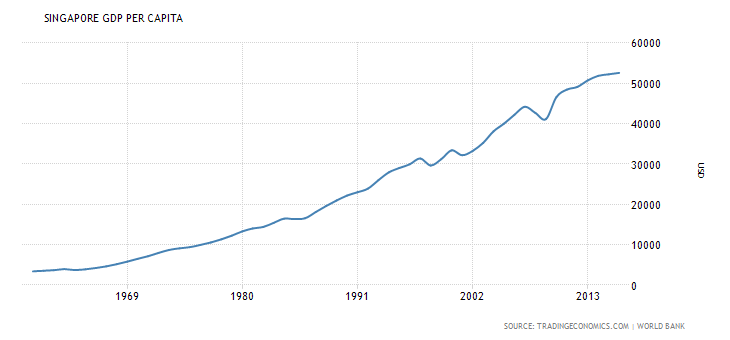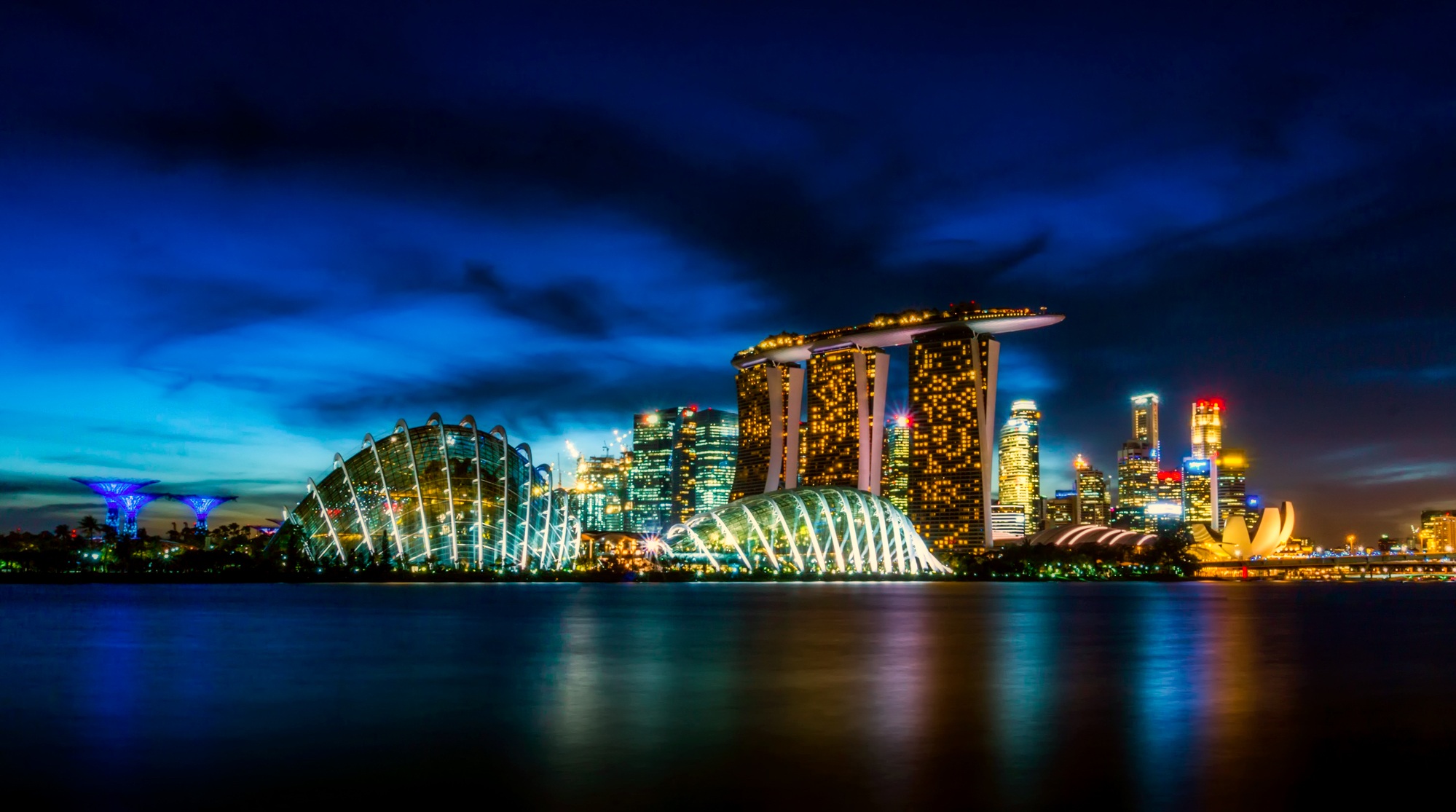Viewers of Anthony Bourdain’s CNN series Parts Unknown last weekend were treated to the raconteur’s visit to the city-state of Singapore. Along with Bourdain’s usual noshing, imbibing, and bantering about the food culture with knowledgeable locals, he also made time for drinks with Donald Low to discuss the country’s economic and political culture. Among Singapore’s hallmarks according to Low, an Associate Dean at the Lee Kuan Yew School of Public Policy, was the desire to attract foreign capital and an “understanding that free trade is good for everyone.”
Low’s remarks will not come as a surprise to readers of the Economic Freedom of the World annual report co-published by the Cato Institute, Canada’s Fraser Institute, and a number of other international think tanks. In the report’s 2017 edition Singapore earns a second-place ranking among the 159 jurisdictions examined for overall economic freedom, and a #1 ranking in the category of “Freedom to Trade Internationally” owing to its score of 9.25 (out of 10). Amazingly, this actually represents one of Singapore’s lower ratings since 1980, with the island country receiving a stunning 9.9 score in the category in 1990.
The results of Singapore’s free trade embrace have been spectacular, strongly contributing to its status as home to the world’s second-largest container port, stunning visual transformation, and dramatic rise in GDP per capita since earning its independence in 1965.

Singapore’s success is, of course, multicausal, with free trade being just one of several key ingredients that have made the country the wealthy economic hub it is today. Such caveats aside, the country nonetheless stands as a rebuke to those who cling to protectionist policies and insist that such measures are necessary to ward off the alleged threat of foreign competition.
This first appeared in Cato at Liberty.

